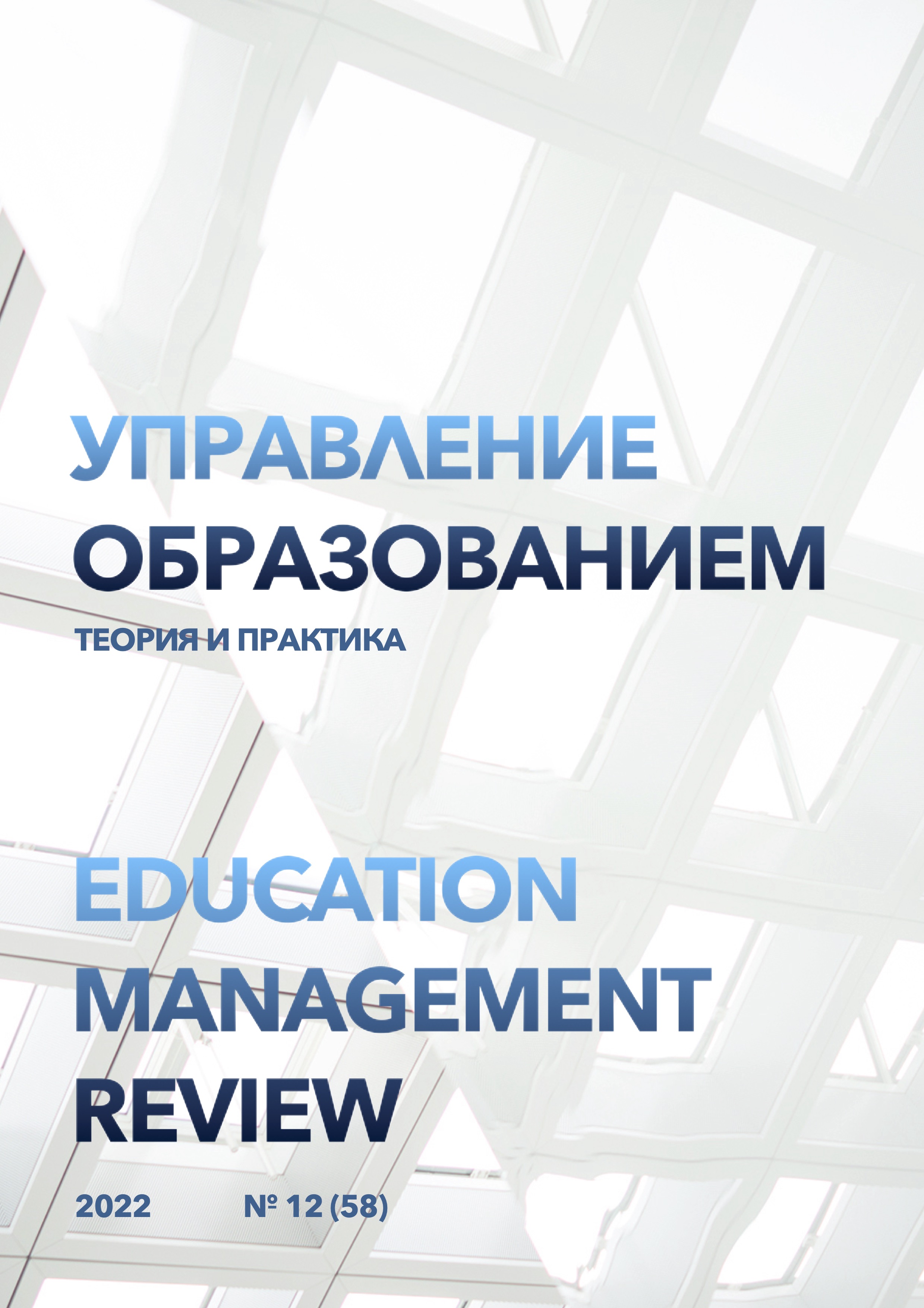The possibilities of using Prometheus and Moodle SDS in the implementation of e-learning and distance learning technologies within the information and educational environment at a higher educational institution
DOI:
https://doi.org/10.25726/q9183-4190-8727-zKeywords:
Prometheus SDO, Moodle SDO, LMS, distance technologies, e-learning, digitalization of education, digital didactics, information and educational environment of the university, individual educational trajectoriesAbstract
This article discusses the current aspects of the implementation of e-learning and distance learning technologies in higher education. E-learning is not limited to distance learning technologies and has a significant variety that allows you to effectively solve traditional learning tasks when implementing hybrid and blended learning models. Using the example of the sections of the discipline "Higher Mathematics" implemented as part of a pedagogical experiment to build an information and educational environment in a higher educational institution based on the Moodle and Prometheus distance learning systems, the methodological and information and communication features of the implementation of the learning process are revealed. The main objective of the conducted pedagogical experiment is to determine the practical possibilities of the communicative information and educational environment (involving the differentiation of learning, the construction of individual educational trajectories of students and the intensification of educational interaction through the use of modern digital, including information and communication and distance technologies), which allows to achieve a higher quality of education than in traditional education. The purpose of this article is not a global comparison of these two distance learning systems, but the identification of some features of the formation of the information and educational environment at the level of the course "Higher Mathematics" for students of humanities of higher education, identified during the experiment. Special attention is paid to the study of the possibilities of implementing interactive interaction between teachers and students using distance learning systems in the implementation of an academic discipline, that is, the communication component of the information and educational environment in the process of e-learning. This research is relevant within the framework of the project of digitalization of education in the Russian Federation and is a contribution to the development of "digital didactics". The pedagogical experiment carried out within the framework of the study implements the ideas of the strategy of digital transformation of higher education.
References
Бондаревская Е.В. Личностно ориентированное образование: опыт разработки парадигмы. Ростов н/Д., 1997. 28с.
Гурниковская Р.Ю. Информационно-образовательная среда общенаучной подготовки студентов гуманитарных специальностей: специальность 13.00.08 "Теория и методика профессионального образования": диссертация на соискание ученой степени кандидата педагогических наук / Гурниковская Рената Юрьевна. Ростов-на-Дону, 2006. 193 с.
Гущин А.Н. Цифровая дидактика: системные основания и образ будущего // Педагогика и просвещение. 2022. № 2. С. 100.
Дроботенко Ю.Б. Исследовательские стратегии преподавателя для организации гибридного обучения // Вестник ОГУ. 2022. №3 (235). С. 14-19.
Константинова Д.С., Кудаева М.М. Цифровые компетенции как основа трансформации профессионального образования// Экономика труда. 2020. Том 7. №11. C. 1055-1072.
Круг Э.А. Удовлетворенность студентов системы гибридного обучения в вузе // Научнометодический электронный журнал «Калининградский вестник образования». 2022. №2 (14). С. 3-12.
Мартынова Ю.В. Методические особенности использования гибридного обучения в условиях пандемии // Вестник СИБИТа. 2022. №2. С. 21-26.
Марченко М.Г. Разновидности гибридных моделей обучения в вузе // E-Scio. 2022. №3 (66). С. 669-673.
Нагаева И.А., Кузнецов И.А. Гибридное обучение как потенциал современного образовательного процесса // Отечественная и зарубежная педагогика. 2022. №3. С. 126-139.
Носкова Т. Н. Дидактика цифровой среды: монография. Санкт-Петербург: Российский государственный педагогический университет им. А. И. Герцена, 2020. 383 с.
Обучение цифровым навыкам: глобальные вызовы и передовые практики. http://edu.mari.ru/school/DocLib3/Функциональная%20грамотность/Глобальные%20навыки.pdf
Обучение цифровым навыкам: глобальные вызовы и передовые практики. Аналитический отчет. М.: АНО ДПО «Корпоративный университет Сбербанка», 2018. 136 с
Опубликована стратегия цифровой трансформации науки и высшего образования: к чему готовиться? https://skillbox.ru/media/education/opublikovana-strategiya-tsifrovoy-transformatsii-nauki/
Отекина Н.Е. Электронное обучение, дистанционные образовательные технологии // Инновационная наука. 2017. №4-2. С. 127-128.
Рудинский И.Д., Давыдов А.В. Гибридные образовательные технологии: анализ возможностей и перспективы применения// Вестник науки и образования Северо-Запада России. 2021. №1. С. 44-52.
Селевко Г.К. Современные образовательные технологии. Учебное пособие. М.: Народное образование, 1998. 256 с.
Статья 16. Реализация образовательных программ с применением электронного обучения и дистанционных образовательных технологий Федерального закона от 29.12.2012 № 273 «Об образовании в Российской Федерации». http://ivo.garant.ru/#/document/70291362/paragraph/261:0
Стратегия цифровой трансформации отрасли науки и высшего образования. https://www.minobrnauki.gov.ru/documents/?ELEMENT_ID=36749
Указ о национальных целях развития России до 2023. www.kremlin.ru/events/president/news/63728
Что такое цифровая дидактика. https://skillbox.ru/media/education/chto-takoe-tsifrovayadidaktika/
Что такое цифровизация образования и зачем она нужна. https://skillbox.ru/media/education/chto-takoe-tsifrovizatsiya-obrazovaniya-i-zachem-ona-nuzhna/
Astonishing E-learning Statistics for 2021. https://techjury.net/blog/elearning-statistics/#gref
Gagne R.M., (1985). The conditions of learning. New York, Holt, Rienhart & Winston.
Online Education Market Study 2019 | World Market Projected to Reach $350 Billion by 2025, Dominated by the United States and China. https://www.globenewswire.com/newsrelease/2019/12/17/1961785/0/en/Online-Education-Market-Study-2019-World-Market-Projected-to-Reach-350-Billion-by-2025-Dominated-by-theUnited-States-and-China.html




